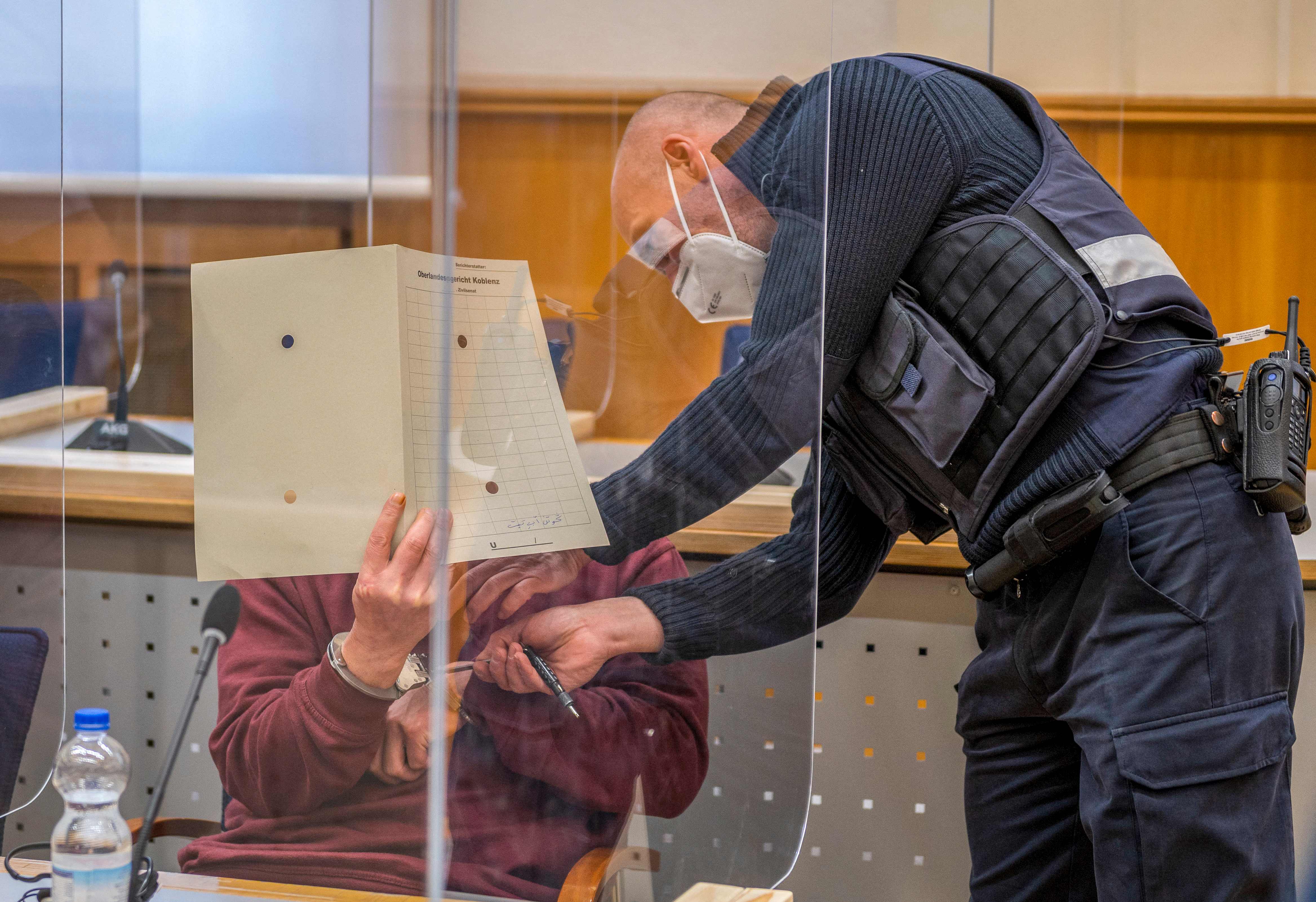Syrian prison guard jailed for torture by German court in landmark ruling
Eyad al-Gharib was sentenced to four and a half years

Your support helps us to tell the story
From reproductive rights to climate change to Big Tech, The Independent is on the ground when the story is developing. Whether it's investigating the financials of Elon Musk's pro-Trump PAC or producing our latest documentary, 'The A Word', which shines a light on the American women fighting for reproductive rights, we know how important it is to parse out the facts from the messaging.
At such a critical moment in US history, we need reporters on the ground. Your donation allows us to keep sending journalists to speak to both sides of the story.
The Independent is trusted by Americans across the entire political spectrum. And unlike many other quality news outlets, we choose not to lock Americans out of our reporting and analysis with paywalls. We believe quality journalism should be available to everyone, paid for by those who can afford it.
Your support makes all the difference.A German court convicted a Syrian regime prison guard of crimes against humanity in a landmark court case which could pave the way for further prosecutions of alleged human rights abusers.
Eyad al-Gharib was convicted of being complicit in the torture and murder of opponents of Bashar Assad’s regime inside the notorious Branch 251 detention centre on al-Khatib Street in Damascus.
It marked the first time an official of the Assad regime was tried and convicted for crimes committed in Syria. Al-Gharib was convicted in court in the German city of Koblenz in a case that could have wider repercussions for bringing alleged human rights abusers to trial.
Al-Gharib was sentenced to four and a half years. He was accused of being part of a unit that arrested people following anti-government protests in the Syrian city of Douma and took them to a detention centre known as Al Khatib, or Branch 251, where they were tortured.
The 44-year-old was put on trial last year alongside Anwar Raslan, a more senior Syrian ex-official who is accused of overseeing the abuse of detainees at the same jail near Damascus.
Raslan is accused of supervising the “systematic and brutal torture” of more than 4,000 prisoners between April 2011 and September 2012, resulting in the deaths of at least 58 people.
A verdict in his case is expected later this year.
Balkees Jarrah, associate international justice director at Human Rights Watch, said the conviction of Al-Gharib “gives Syrians some hope that this may be the beginning of a path to fuller justice”.
Evidence reviewed during the trial included photographs of thousands of alleged victims of torture by the Syrian government. The images were smuggled out of Syria by a police officer.
Syrian government officials did not testify during the trial.
The verdict also gives hope to the 800,000 Syrians in Germany who say they were tortured in government facilities after attempts to establish an international tribunal for Syria failed.
“This is an important step forward in the process of securing accountability for the Syrian government’s systematic use of torture against civilians,” said Steve Kostas, a lawyer with the Open Society Foundation’s Justice Initiative, which is representing Syrian plaintiffs.
The Assad government denies it tortures prisoners.
Al-Gharib’s lawyers had asked for an acquittal, saying he had carried out the arrests in and around Damascus under duress from his superiors. He had asked the court to consider him a witness in broader legal efforts against the Syrian government.
Reaction from victims to the verdict was swift.
Ahmed Helmi, who was detained in nine prisons in Syria and later co-founded the Ta’afi Initiative, a network of survivors of torture in Assad’s jails, said he hoped it was the start of many more convictions.
Although he was not personally held in Khatib, the last word his family had of his two cousins, who disappeared nine years ago, was that they were being held in the infamous detention centre.
He himself had been tortured in five of the nine jails where he was held between 2012 and 2015.
“I’m just happy. It is the feeling we want to have in the future: that feeling of waiting for justice to take place, instead of the heartbreak of waiting for news of our disappeared loved ones,” he told The Independent.
“This is is the first time that someone involved in torture in Syria does not enjoy complete impunity,” he said.
Helmi was arrested in 2012 as a 22-year-old engineering student, for running an underground medical network treating people wounded by regime forces.
He said the details of Wednesday’s verdict in Koblenz weren’t important.
“For me it doesn’t matter whether he was found guilty or not, it doesn’t matter if he gets the minimum or maximum sentence, if he serves time or not, the momentum this court has created is what is important,” he said.
“The message is that accountability will happen. We want perpetrators to be held to account for their actions, we don’t want personal revenge.
“We need accountability for the future of Syria because it is the first step that will give a rule of law.”
Join our commenting forum
Join thought-provoking conversations, follow other Independent readers and see their replies
Comments